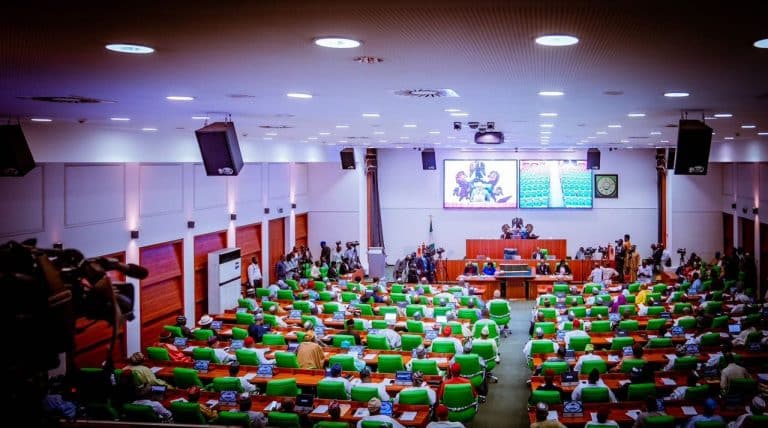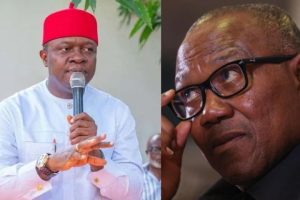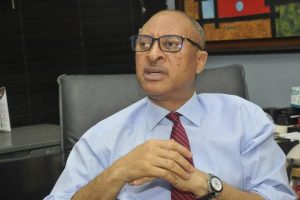
The Federal High Court in Lagos has scheduled July 18, 2025, for the hearing of a high-stakes legal battle between Sterling Bank, its holding company, and key executives against the House of Representatives, challenging the legislative body’s authority to investigate private banking transactions involving two of the bank’s clients.
The plaintiffs Sterling Bank, Sterling Financial Holdings Company Plc, and four of its top executives (Yemi Odubiyi, Abubakar Suleiman, Lekan Olakunle, and Dele Faseemo) are seeking a perpetual injunction to stop the House, particularly its Committee on Public Petitions chaired by Hon. Michael Etaba, from acting on a 2025 police investigation report alleging financial misconduct involving Dr. Innocent Usoro and Miden Systems Limited.
Background of the Dispute
At the heart of the dispute is a police report that alleged financial impropriety involving inflows totaling over $122 million into Miden Systems’ accounts. Dr. Usoro, a key figure in the case, claimed that the inflows were suspicious and included undocumented withdrawals. He accused the plaintiffs of forging documents to create the impression of a $30 million loan transaction that never took place.
However, Sterling Bank and its co-plaintiffs, represented by human rights lawyer Femi Falana (SAN), argue that the transactions were part of a legitimate commercial loan agreement dating back to a 2010 contract with Shell Nigeria, executed by Miden Systems. They insist that all account activities were handled in line with commercial banking norms.
Challenge to Legislative Oversight
The plaintiffs maintain that the National Assembly lacks constitutional authority to intervene in private banking arrangements or to reopen a matter already settled by a 2021 consent judgment from the same Federal High Court. They cite Sections 88 and 89 of the 1999 Constitution, arguing that the House’s attempts to summon executives and revisit a judicially decided case amount to an overreach of its oversight powers.
They are asking the court to declare any such summons or legislative action null and void.
Defendants Push Back
The defendants—Dr. Innocent Usoro, Miden Systems Limited, the Inspector-General of Police, and the House of Representatives—contend that the lawsuit is an attempt to shield financial institutions from necessary scrutiny. Represented by counsel Rowland Uzoechi, they argue that the issues raised are hypothetical and not justiciable, thus falling outside the court’s jurisdiction.
In a 40-paragraph counter-affidavit, Usoro alleged that the plaintiffs misled the court to obtain a Mareva injunction (a freezing order) and engaged in document falsification to obstruct a thorough examination of suspicious account activities.
Potential Implications
This legal faceoff touches on significant constitutional questions about the limits of legislative oversight, the independence of the judiciary, and the autonomy of financial institutions in Nigeria. The court’s decision could establish a precedent that either strengthens or constrains the investigative authority of the National Assembly over matters involving private entities and previously adjudicated disputes.
Looking Ahead
As the July 18 hearing approaches, legal analysts and stakeholders in the banking and governance sectors will be closely watching the proceedings. The outcome could influence future interactions between Nigeria’s financial sector and its legislative institutions, potentially redefining the scope of parliamentary inquiry in the context of ongoing anti-corruption efforts.





